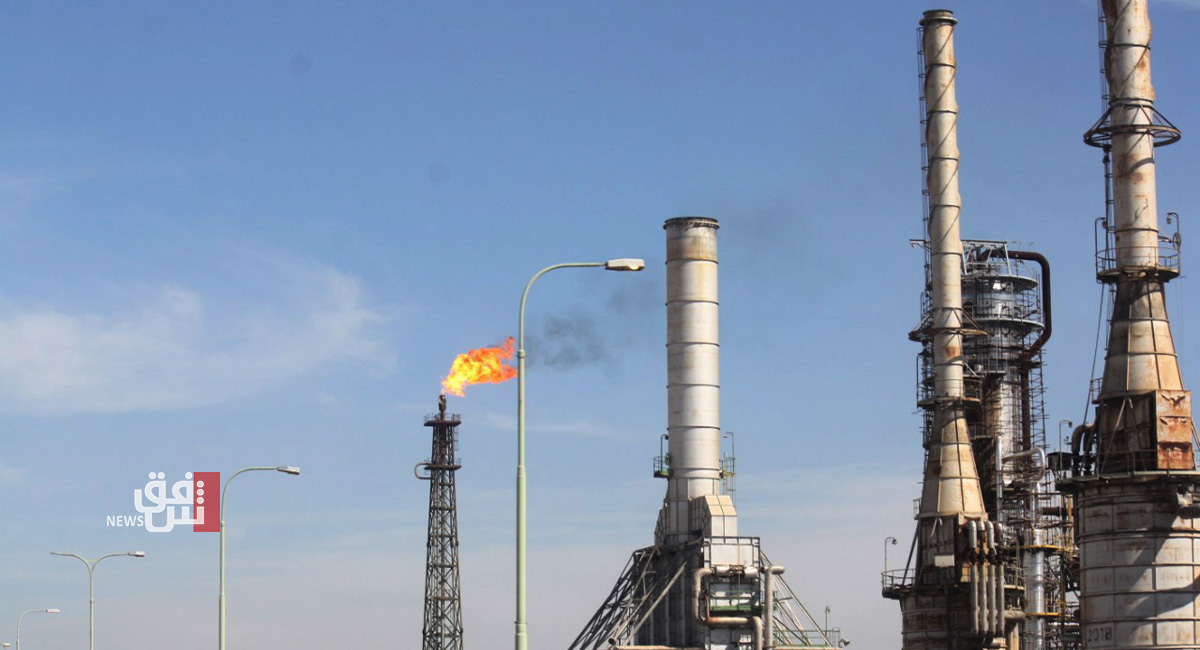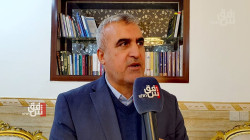Kirkuk's dual crisis: escalating cancer cases and environmental degradation

Shafaq News/ Kirkuk, known as the "City of Black Gold" since the discovery of great oil wells, is facing a dual crisis of escalating cancer cases and environmental degradation, primarily attributed to the presence of oil companies and pollution levels that have reached alarming heights.
As injuries and cancer diseases claim civilian lives, the city's healthcare infrastructure faces immense challenges in providing adequate treatment amidst a shortage of medications and soaring treatment costs.
Surge in Cases Overwhelms Healthcare System
In 2023, there was a surge in cancer cases in Kirkuk, surpassing 1100 cases, with a shortage of medications.
Statistics conducted by active humanitarian health organizations supporting cancer treatment in Kirkuk indicate that the cases have increased in the Governorate over the past five years, reaching more than 9,000 cases.
Environmental activist Ghassan Adel confirmed to Shafaq News Agency that "field surveys conducted by a specialized team in Kirkuk to monitor cancer patients have recorded more than 9,000 cases of the disease in the past five years. The most significant increase was in the last and current years, with the registered numbers for the previous year reaching only 1,100 cases, according to government agencies. However, there is an increase in numbers beyond these cases."
Oil Industry Fueling Rise in Cancer Cases
Explaining the leading causes of the increase in cancer cases, the head of the Human Rights Committee in the Iraqi Parliament, Arshad Al-Salihi, believes that "the increase and prevalence of cancer patients are due to the presence of government-owned oil companies, a cement factory, and private refineries located on the outskirts of Kirkuk. This situation poses a real environmental threat to the Governorate, without any government intervention to address the causes of these pollutants."
Meanwhile, the director of the Cancer Hospital, Niazi Ahmed, told our Agency, "Due to the presence of oil industries and production in Kirkuk, pollution sources have increased, contributing to the rise in infections among citizens. This year alone, there have been a thousand cancer cases recorded amid a scarcity of medications provided by the federal government for treating patients."
Furthermore, the Director-General of the Environmental Protection and Improvement Directorate in the Northern Region, Ali Ezzdin Khurshid, confirmed that "the high number of cancer cases is due to oil companies and private oil refineries that release toxins into Kirkuk's environment, causing pollution that reaches 100% due to the emissions from these companies and the private refineries that contribute to spreading toxins and polluting the Governorate's environment."
Khurshid revealed that a financial fine of one billion Iraqi dinars has been imposed on Northern Oil Company due to its environmental pollution, especially the contaminated gases. He stated that "these pollutants contribute to cancer cases in Kirkuk, along with the presence of imported foods not under government control."
Regarding the number of private oil refineries, Khurshid pointed out that "there are five oil refineries on the outskirts of Kirkuk that are officially licensed and operational. However, some do not adhere to environmental conditions when operating these refineries, and occasional gas odors are noticed in the air, filling the Governorate."
He emphasized the formation of a specialized team and the provision of high-capacity devices to detect gases. The Environmental Protection and Improvement Department has worked for several days to locate the leak, but it has not been found yet," adding, "There are many food products entering the country, especially canned goods containing preservatives and not subject to quality control and supervision. These contribute to the incidence of cancer."
Cancer Treatment in Kirkuk
The hospital north of Kirkuk is witnessing an influx of patients from neighboring governorates like Saladin and Diyala because it offers extensive and free treatment services for cancer patients.
Ahmed added, "Cancer medications are costly, ranging from $200 to $3,000, making it difficult for poor citizens to afford them," noting that "cancer drugs are susceptible to counterfeiting, and their entry into Iraq through smuggling contributes to the presence of low-quality drugs, worsening patients' conditions."
He confirmed that "very few medications have reached the hospital through the Ministry of Health this year, worsening the situation for patients and prompting them to turn to the local market where prices are twice as high as those in government hospitals."
In turn, Osama Abdul Rahim, a cancer patient, confirmed that he had been suffering for years.
"The cost of one injection ranges from 200 to 500 US dollars, and sometimes the price of some treatments reaches 3,000 dollars, which is the cost for one treatment session." He said.
MP Al-Salihi pointed out that "the only hospital for cancer diseases in Kirkuk was built through donations from the Governorate's residents. Today, the hospital provides services to thousands of patients, and the increase in cancer cases and deaths in Iraq has become a real danger threatening many of the affected individuals."
He continued, "The rise in cancer cases is met with the Ministry of Health's inability to provide and support treatments at affordable prices for patients, especially since the prices of medications in the local market are high and exceed the capabilities of the poor citizens who struggle to make ends meet."
The people of Kirkuk have long endured a history marked by persistent instability. Today, residents and activists are increasingly concerned that as long as fumes and smoke from oil and gas refineries continue to envelop Kirkuk, cancer and other health challenges will only exacerbate.
